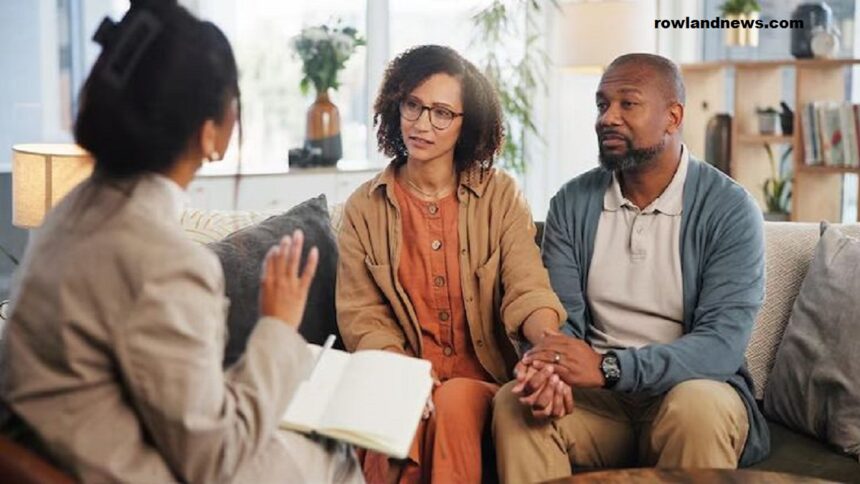Love, Service, and Fighting: The Case for Military Marriage Support
Military life brings not only. Professional satisfaction, but also dignity and commitment, it can create quite heavy baggage in a marriage. Long deployments and transitions back to place profound stresses on partnerships between servicemen. Service-related trauma can create distance between partners, both physically and emotionally, and in moments of overwhelming frustration, people can say things that they will regret for a lifetime. If you or your spouse has ever wondered, “Does the VA provide marriage counseling?”—you are not alone.
Is there a silver lining? Yes, in the United States, the Department of Veterans Affairs (VA) does offer marriage and relationship counseling. Still, there are several essential particulars or eligibility requirements that you must understand before taking this step.
Let’s look step by step at what’s covered, who qualifies, and how veterans and family members may receive this potentially life-altering support to help rebuild their relationships.
What Is Marriage Counseling and Why Does It Matter for Veterans
Marriage counseling (also called couples therapy) is a form of psychotherapy designed to help couples improve their communication, resolve conflicts, and build stronger emotional bonds. For veterans, these sessions can be crucial, not when dealing with PTSD, depression, anxiety disorder, or reintegration stress after service.
Why It Matters
- Upheaval in traditional family patterns because of frequent changes in station and overseas deployments
- Their emotional well-being can have an impact on their relationship.
- Communication breaks down under continued duress and mistrust between the combat veteran and his family members because of this absence is common.
Couples therapy provides both partners with a safe space to express their concerns, rebuild trust, and feel heard. Typically, it is conducted by a counselor who is familiar with the military.
Does the VA Provide Marriage Counseling?
The VA Does Provide Marriage Counseling, Under Some Conditions
The VA does provide marriage counseling, but primarily when it’s related to a veteran’s VA-covered mental health treatment. At the least, that means a vet cannot go to a VA social worker and receive free counseling to help with marital problems. End-of-story, case-is-closed.
In short, if a vet is getting care because he has PTSD, depression or another mental health condition, and the therapist says that marriage or family counseling would supplement the vet’s treatment for that condition, then VA can pick up those talks.
🔎 According to VA.gov, family and marriage counseling can be part of a veteran’s overall mental health plan when clinically appropriate.
Eligibility Requirements
- The veteran must be enrolled in VA health care
- Counseling must be recommended by a VA provider. Approximately one-third of the appointments cover services such as individual counseling, group therapy, and medication management.
What Programs and Services Include Couples Counseling?
VA Mental Health Services
For a veteran who receives mental health care through the VA, spouse counseling can be suggested by his therapist or provider. This is often referred to as conjoint therapy and focuses on how the systems of the relationship affect the veteran’s health.
Vet Centers
Serving primarily Vietnam-era combat veterans plus those who served in other designated hazardous duty areas, Vet Centers offer confidential counseling and family assistance with an emphasis on keeping things as free of red tape as possible. This same service is also provided to veterans of the Iraq War through “Vet Center” programs in places like Boston and Las Vegas—again with only minimal overhead costs and no bureaucratic entanglements on their part.
These institutions are community-based and help with:
- Post-deployment reintegration
- Family affairs
- and
- PTS—Even if it is not considered service-connected militarily, that leads to it.
Posts based on personal experience, such as relationship problems among married individuals, can usually be considered posts. Within this ambience of kindness and love (not to mention eating more slowly), post-traumatic stress disorder becomes less loathsome than it once was.
That is excellent news for you, especially since you should have gratitude toward him, because you don’t receive a service-connected disability.
👉 Click here to find a Vet Center near you.
VA Telehealth Services
The VA has constantly expanded telehealth programs. This means couples can receive virtual counseling from the comfort of their own homes. It is particularly important for veterans in rural areas or with mobility problems.
📲 For information about virtual care, please visit:
👉 VA Telehealth Services
Not Eligible for VA Marriage Counseling? Try These Resources
Military and Veterans Nonprofits
- Give an Hour offers free mental health care staffed entirely by licensed professionals who volunteer their time to help servicemembers and their families.
- Military OneSource – Confidential, Free Counseling (for active duty families, Guard and Reserve members)
Resources in the Community
Look for community clinics, churches, or universities that offer training for counselors, where couples can access low-cost therapy. Some therapists use rates that are on a sliding scale according to income.
Real-Life Case Example
Casey went to the VA for help and was sent to their social worker for assessment. After that, the couple was referred to see a marriage and family therapist near their home. “It was as if an angel had walked into the room!” Casey said, by working with someone who specialized in her problem, she found not just words of comfort but also the relief that comes when two people understand each other completely.
Invent Real-Life Case: After Their Deployment, They Are Healed Together
John, a Marine Corps veteran suffering from undiagnosed PTSD, came home from Afghanistan. His wife, Lisa, noticed that he was becoming increasingly distant and troubled; he would not speak to anyone or confide in her. Quarrel after quarrel followed until they were on the verge of separating.
A VA provider suggested that they attend couples counseling together at their local Vet Center. With help from a trauma-informed therapist, John began to open up. Lisa got some insights on how to support him without making both of them feel like they were treading on eggs.
Over several months, their relationship gradually improved. They didn’t just stay together — they thrived together.
Conclusion: Relationships Need Care As Well
Marriage is demanding work, and military marriages often carry an additional burden. However, just as veterans deserve physical and mental care, so do their relationships. The VA’s counseling services for couples can serve as a lifeline to some—and also as the turning point toward healing.
When Partners Need Help
The relationship may not seem so tight as it did back then, and while you’re struggling on your own or fighting with each other to no purpose at all, don’t wait till things come to a head. Help is available, and getting it is easier than you might think.
What’s Next?
Get in touch with your local Vet Center, find out whether your VA provider can arrange for relationship therapy, or make use at no cost of free services like Give an Hour.
All good relationships start from the desire to call for help, and the courage to work together, trying to create something better.
Resources to Help
👉 VA Mental Health Services
👉 Vet Center Locator
👉 Give an Hour – Free Counseling
👉 Military OneSource











